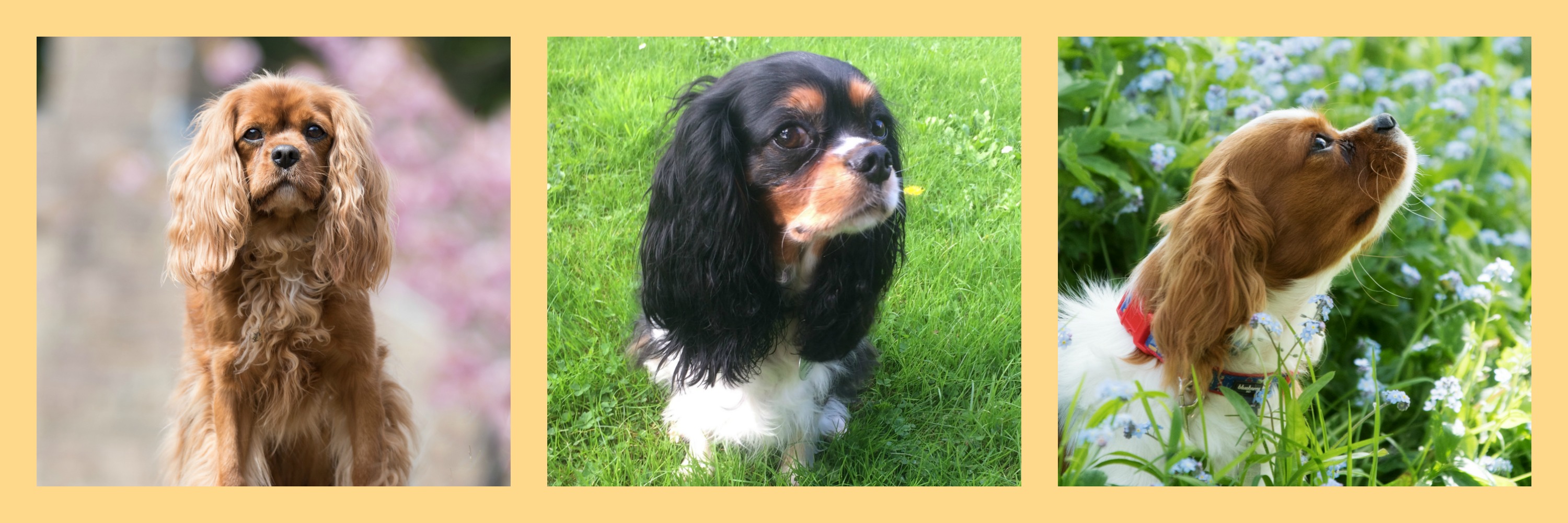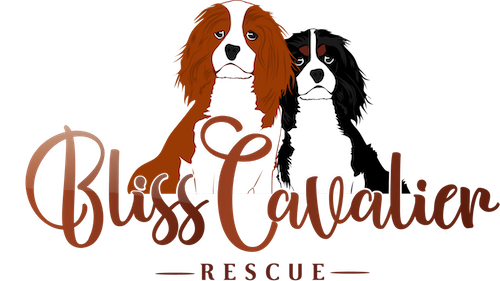Do you need help with rehoming your Cavalier?
We understand that circumstances can change and be completely out of your control. If you can no longer care for your Cavalier please get in touch with us. We won't be judgemental and are discreet. Please contact us for more information, we will always do our best to help regardless of where you are based in the country. We do not charge a surrender fee to owners needing our help.
We are a breed specific, foster based Cavalier King Charles Rescue based in England covering all of the UK We are a registered charity in England, charity no. 1193078. Health, behavioural problems and changes in owners circumstances are the main reasons Cavaliers are surrendered into rescue. Our beautiful breed suffers with some terrible genetic diseases and illnesses and the rise in puppy farming and breeding without health testing has only increased the problem. We do not use kennels, only Cavalier experienced foster homes.
Mitral Valve Disease, Chiari Malformation and Syringomyelia
Mitral Valve Disease is found in 90% of Cavaliers by the age of 10. The hereditary heart disease is much more common in Cavaliers than in other breeds and with the correct treatment can be very costly to owners long term. Sadly many owners do not factor this in when buying a puppy and simply cannot afford the long term care needed.
Chiari Malformation and Syringomyelia are very painful, serious neurological conditions that so many Cavaliers suffer with. They have been bred to have smaller skulls in order to look 'cute', this has resulted in the skull being too small for the brain. Dogs that have Chiari Malformation and/or Syringomyelia are often in constant pain and just to maintain a quality of life need daily pain relief. We have excellent success with pain management due to our close relationship with a neurologist that is very experienced in the condition.
Behavioural issues
Many Cavaliers come into rescue with us due to behavioural issues such as resource guarding, aggression towards children or visitors, separation anxiety and biting.
Some of these behaviours are due to environmental issues such as a new baby in the home. Another example is a change in circumstances that can lead to a dog being left alone too long while owners are at work, they then struggle with separation anxiety. Commonly we find the dogs with behavioural issues have underlying painful health problems. Some Cavaliers have come into rescue because they are not tolerant of children. When needed we work with a behaviourist to improve things. Every dog has a full behavioural assessment period before they go up for adoption to ensure they are adopted to the right home.
Other common Cavalier health problems
Cavaliers also suffer with some other common problems. Very often they have bad teeth requiring extraction and regular dental work. Their mouths are small and overcrowded, without good dental hygiene and good food they will need to be anesthetised for a dental procedure, often yearly.
We have seen many Cavaliers with knee problems, most commonly luxating patellas requiring surgery and cruciate damage. Hip dysplasia is quite common, as with other breeds, which again may require surgery or long term physiotherapy and pain relief.
A misconception with Cavaliers being prone to being overweight has led to many owners thinking this is normal for the breed. Carrying too much weight not only impacts the joints leading to knee and hip problems, but also impacts the heart and makes it work much harder- a problem that Cavaliers struggle with too much already. We have our own 'Cavalier Fat Club' group for owners to join, it is very friendly and supportive.
Change in circumstances
Cavaliers come into rescue due to changes in owners circumstances including increases in working hours, owners going into residential care, change in income, owner death and owners health deteriorating.
We understand it is a very difficult decision for owners to make but often they don't have a choice and only want what is best for their Cavalier. We do not use kennels, only loving foster homes which makes the transition smooth and less stressful for the dogs. Every dog is assessed properly and their medical issues are addressed before adoption.

How do you adopt one of our rescue dogs?

Spotted a Cavalier looking for a home?
Follow us on our social media channels for the very latest dogs that are available to be adopted. Each dog is an individual so be sure to thoroughly read all of the information relating to the dog that you are interested in. We will give as much information as possible that is currently available.
Once you are happy the dog is a great fit for you and the rest of your family please fill in an application form. The form asks for a lot of questions to be answered, this is so we can ensure the dogs will be rehomed to the right family that suits them best. Please ensure you answer every question to the best of your ability with as much information as possible.

Telephone Interview
Once we have received your application form if we think you can offer a suitable home you will be contacted by the adoption team, they will be able to give you lots of information and answer your questions also.
Following the telephone call, if successful in your application, the foster parent will organise a home check to be carried out with one of our volunteers. This will usually take place within 2-3 days of the telephone call.

Home Check
A home check will always be carried out prior to adoption. This is to ensure your home is safe for the dog.
You will be informed within 24 hours of the home check taking place if you were successful. Sometimes we may ask for some changes to be made, an example of this would be making sure garden gates are locked or removing dangerous items from the garden.
If your home check is successful you will be invited to meet the dog you wish to adopt at their current foster home. You must bring all human family members and all dogs that live in your household.
